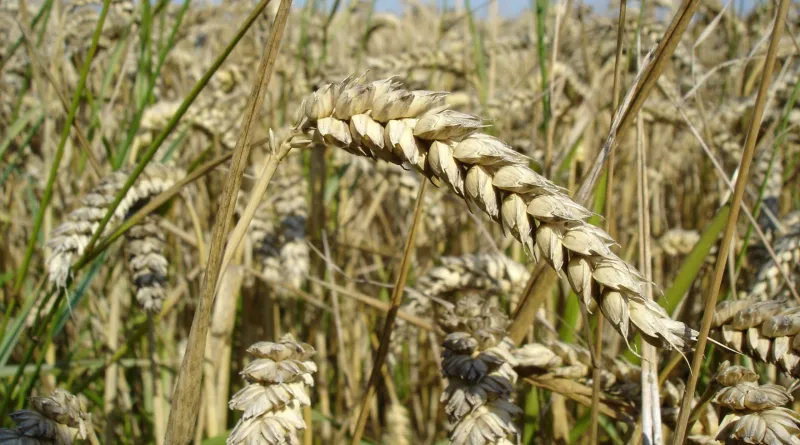The Ukraine war has cast its shadow on the state election in Gujarat in December via the government’s sudden ban of wheat exports. The government has defended its decision, saying the ban will help it manage food security. The great unspoken reason seems to be the political need to ensure that sky-high food prices do not affect the BJP’s chances in the coming Gujarat poll.
The BJP has won the last five state elections in Gujarat and so faces the perils of anti-incumbency. In the 2017 state election, BJP scraped through with 99 of the 182 seats (which later rose to 112 seats). A loss of just nine additional seats this time will oust it from office, a situation it will strain every nerve to avoid. The wheat export ban is only one of many populist measures we can expect in the run-up to the poll.
Ukraine and Russia usually account for 25% of world wheat trade. The world price of wheat was around $160/tonne in 2018, much lower than in India, which therefore could not export wheat. The government’s grain stocks soared to over 80 million tonnes of rice and wheat since procurement far exceeded offtake from the public distribution system.
But a tightening global market sent global prices soaring in 2021-22. This made Indian wheat competitive and helped India export 7 million tonnes that year. Then Russia invaded Ukraine and the global wheat price skyrocketed to $450/tonne (about Rs 40/kilo). Initially, the government gloated at the prospect of exporting 15-20 million tonnes worth maybe $10 billion. But domestic wheat prices rose sharply as exports rose and bad weather hit the rabi wheat harvest. The BJP suddenly realised that if exports were unlimited and the Indian price equalled the global rate , this would mean doubling to Rs 40/kg. In panic, the government banned exports.
This drew sharp criticism internally and externally. Anil Ghanwat, head of the Shetkari Sanghatana, castigated the government for depriving farmers of a rare golden opportunity. In most years, farmers struggle with drought, floods, pests, and low prices. Once a decade or so farm prices shoot up, allowing farmers to make up for the bad years.
The Prime Minister earlier promised to double farm incomes. Yet just when this became feasible, the government snatched away the windfall. Farmers are outraged at implicitly being taxed to aid the BJP’s election chances. All wheat farmers have not sold their newly harvested crop. Many hold stocks to be sold at higher prices later in the year and will now suffer.
Traders are in a soup too. They bought wheat at well above the minimum support price of Rs 2,015/quintal to export at a profit. The ban will saddle them with unsold stocks and huge losses. Many will be unable to pay banks and warehouses for no fault of their own. Once such exporters were given gold medals. Now the government is calling them hoarders. Untrue, they want to export, but the government is forcing them to hoard stocks by stopping exports. India’s sad global reputation for being an unreliable agricultural exporter has just been vindicated once again.
World leaders have criticised India for worsening a terrible global situation. Many poor countries are deep in debt and cannot afford wheat at $500/tonne. India has huge surpluses but wants to hoard these for domestic use rather than sell them to a needy world. Officials say India will do individual government-to-government deals to assuage world hunger, citing a gift of 50,000 tonnes to Afghanistan. But this is peanuts compared to the 15-20 million tons sequestered from the global market by the ban.
The government seeks to keep Indian prices low even if that makes international prices higher. We can defend this “India first” policy. It may seem selfish, but every government should feed its own people before catering to outsiders. However, a total export ban is panicky overkill. India can comfortably export 10-15 million tonnes and yet have enough for its public distribution system.
Ministers earlier talked of exporting 10-15 million tonnes. India should stick to that. It has allowed exporters to fulfil formal contracts already signed, but that’s not enough. To help farmers and traders who have not yet signed export deals, the government must sit down with them to create a pain-sharing plan that tames domestic prices while permitting at least 10 million tonnes of exports.
Perhaps a monthly export quota of 4-5 lakh tonnes can be shared by lottery across star trading houses. Perhaps ‘sharbati’ wheat, a luxury variety, can be freely exported. Traders can participate in government-to-government wheat deals. Some export regulation is politically unavoidable. But a total ban is totally unwarranted.
This article was originally published in The Times of India on May 22, 2022.


